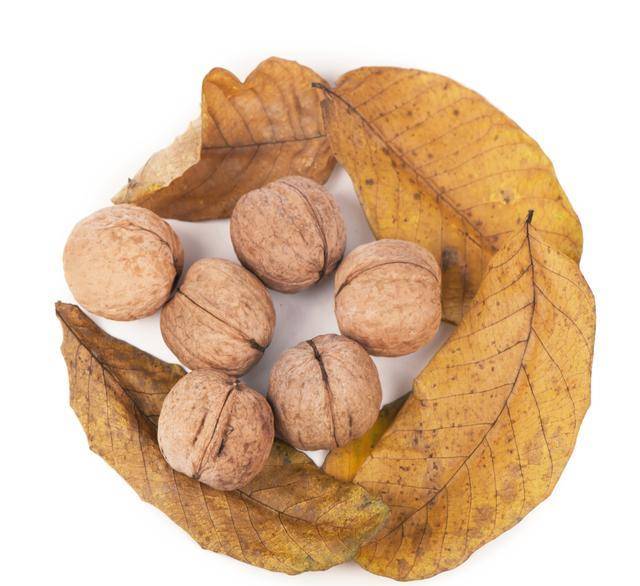Can hypertensive patients eat walnuts? Reminder! It is not recommended for hypertensive patients to eat these three items
Hypertension, as a common chronic disease, has become a major killer of modern people’s health. For hypertensive patients, dietary control is an indispensable part of daily life. So, can hypertensive patients eat walnuts? What are the foods that hypertensive patients should avoid? This article will provide detailed answers to these questions.
1. Nutritional value of walnuts and hypertension
Walnuts are a nutritionally rich nut, containing abundant proteins, fats, minerals, and vitamins. Among them, omega-3 and omega-6 unsaturated fatty acids have a positive effect on cardiovascular health. These healthy fats help lower bad cholesterol (low-density lipoprotein cholesterol) in the blood, while increasing the levels of good cholesterol (high-density lipoprotein cholesterol), thereby improving cardiovascular health.
For hypertensive patients, it is okay to consume walnuts in moderation. The unsaturated fatty acids in walnuts help lower blood pressure and reduce the risk of cardiovascular and cerebrovascular diseases. However, due to the high calorie content of walnuts, hypertensive patients should control their intake to avoid consuming too many calories, which may lead to weight gain and worsen hypertension.
2. Three types of foods that hypertensive patients should avoid
While walnuts have certain benefits for hypertensive patients, not all foods are suitable for them to consume. The following three types of foods should be avoided by hypertensive patients in daily life:
1. High-salt foods
Salt is a “big enemy” of hypertensive patients. Excessive salt intake can lead to water retention in the body, increase blood volume, and consequently raise blood pressure. Therefore, hypertensive patients should strictly control their daily salt intake, with a recommended intake not exceeding 6g per day. High-salt foods mainly include pickled foods, salted vegetables, cured meats, canned foods, etc. In addition, some processed foods like instant noodles, potato chips, etc., also contain high salt content, which hypertensive patients should try to avoid.
2. High-fat foods
Excessive intake of high-fat foods can lead to elevated blood lipids, increase the risk of atherosclerosis, and worsen hypertension. High-fat foods mainly include fried foods, fatty meats, animal organs, dairy products, etc. When choosing cooking oils, hypertensive patients should opt for plant oils rich in unsaturated fatty acids, such as olive oil, flaxseed oil, and avoid using animal fats.
3. Spicy foods
Stimulating foods like chili peppers, mustard, curry, can stimulate the nervous system, cause blood vessel constriction, and raise blood pressure. Additionally, beverages containing caffeine such as strong tea, coffee, also stimulate the cardiovascular system and are not conducive to blood pressure control. Therefore, hypertensive patients should try to avoid consuming these stimulating foods and beverages in daily life.
3. Dietary advice for hypertensive patients
In addition to avoiding the above-mentioned three types of foods, hypertensive patients should also pay attention to the following points in their daily diet:
Increasing potassium intake: Potassium helps regulate the balance of sodium and water in the body, thereby lowering blood pressure. Foods rich in potassium include bananas, potatoes, mushrooms, spinach, etc. Eating more fiber-rich foods: Fiber helps lower blood lipids, improve intestinal function, and is beneficial for hypertensive patients. Fiber-rich foods include oats, whole wheat bread, beans, vegetables, etc. Maintaining adequate protein intake: Consuming sufficient high-quality protein helps maintain cardiovascular health. Sources of high-quality protein include lean meat, fish, tofu, etc. Controlling total calorie intake: Maintaining a normal weight is crucial for blood pressure control. Hypertensive patients should avoid excessive consumption of high-calorie foods to prevent obesity and worsening of the condition. Quitting smoking and limiting alcohol: Nicotine in tobacco and alcohol can stimulate the cardiovascular system, exacerbating hypertension. Therefore, hypertensive patients should try to quit smoking and limit alcohol consumption as much as possible to protect cardiovascular health.
#Pictorial fans incentive plan#
4. Summary
Hypertensive patients should pay attention to controlling salt, fat, and stimulating foods in their diet, while increasing potassium, fiber, and high-quality protein intake. Consuming walnuts in moderation is beneficial for hypertensive patients, but intake should be controlled. Through reasonable dietary adjustments and lifestyle improvements, hypertensive patients can better control their condition, reduce the risk of cardiovascular and cerebrovascular diseases. In daily life, hypertensive patients should maintain a positive attitude and good lifestyle habits, monitor blood pressure changes regularly, and undergo standardized treatment under medical guidance.


